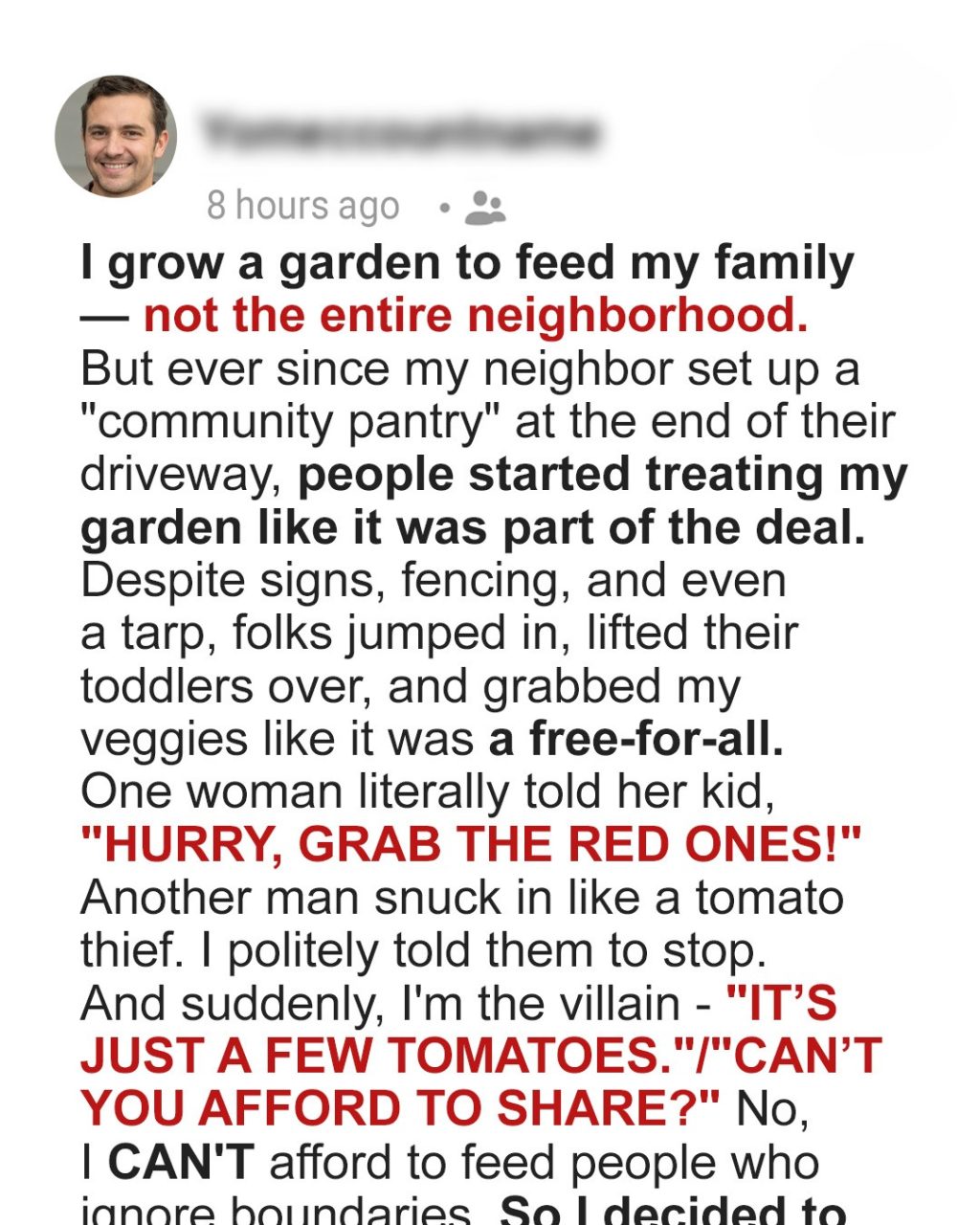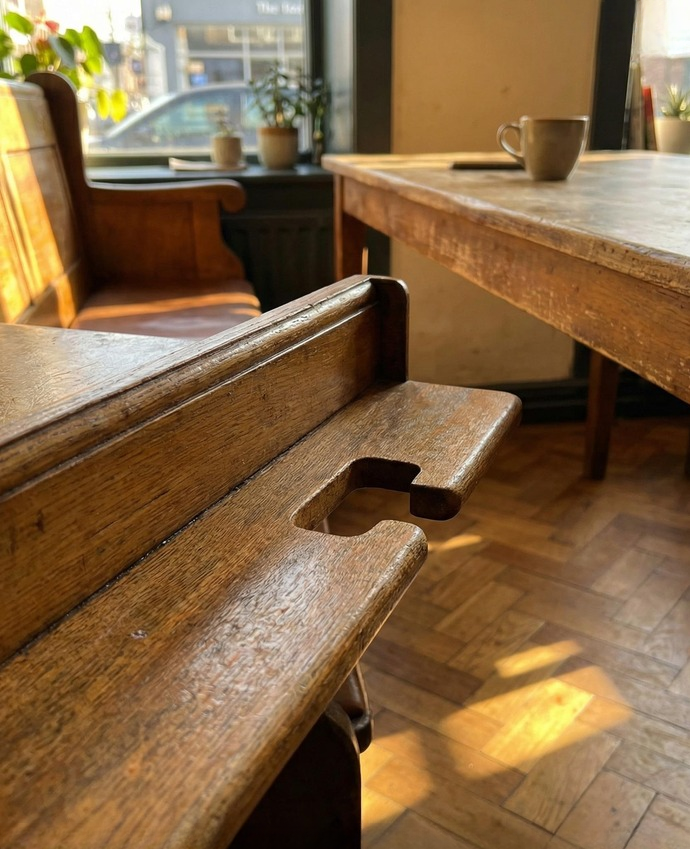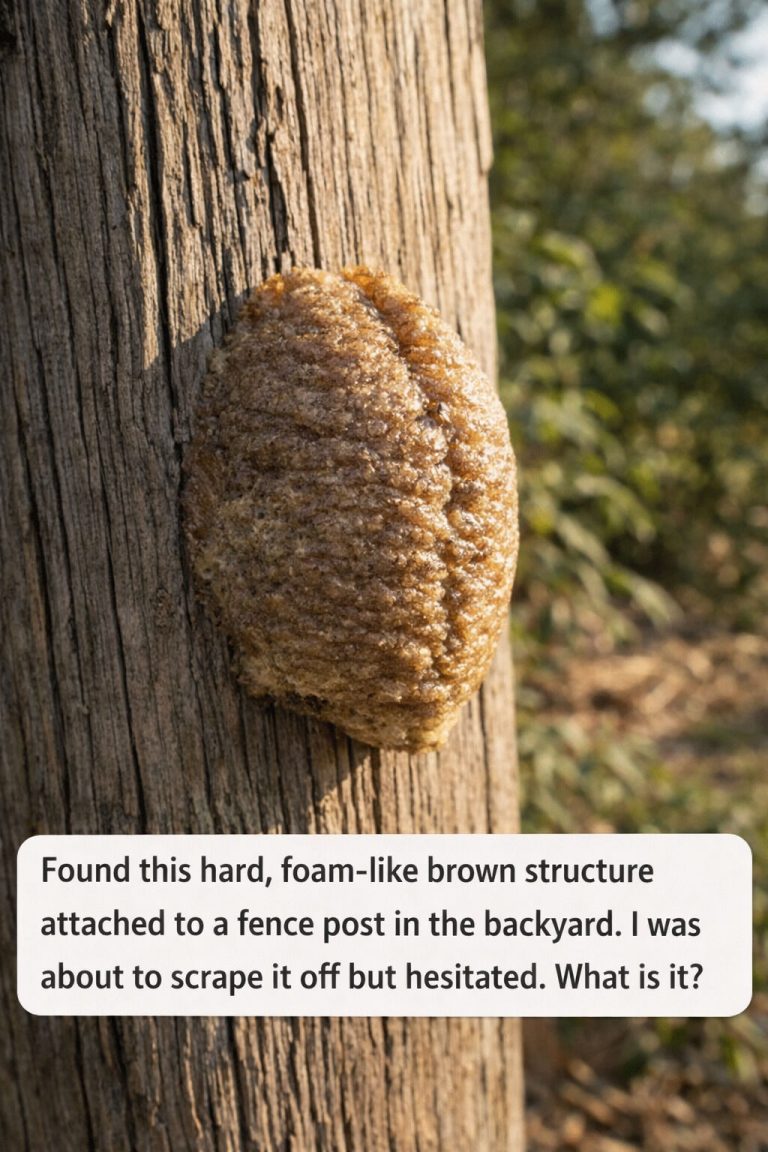
I grow a garden to feed my family—not the entire neighborhood.
But lately, that simple intention has turned into a chaotic mess of misunderstandings, entitlement, and outright theft.
It started when my well-meaning neighbor set up a “community pantry” at the end of their driveway. A lovely gesture, really. They placed canned goods, bread, and hygiene products in a weatherproof bin and encouraged folks to “take what they need.” I supported it at first. I even donated to it.
But soon, the lines blurred.
People started treating my garden—a few feet away and clearly marked—as part of the donation zone. Despite signs, a fence, and even a tarp I used to cover the beds, people jumped in, lifted their toddlers over, and helped themselves to my tomatoes, peppers, cucumbers—whatever they could get their hands on.
One woman literally whispered to her son, “Hurry, grab the red ones!”
Another man crept in at dawn like a tomato thief on a covert mission.
When I caught him and politely asked him to leave, he scoffed and said,
“It’s just a few tomatoes. Can’t you afford to share?”
And suddenly—I’m the bad guy?
I’m the villain for wanting to protect the food I grew with my own hands, for my own children? The food I watered during droughts, protected from pests, and weeded after long workdays? No, I can’t afford to feed everyone who decides my backyard is a free produce stand.
So I did something that felt both necessary and heartbreaking:
I pulled up the garden.
Yes, I tore out the plants. Every tomato, every pepper, every proud little squash vine I’d nurtured. I didn’t want to, but I was tired. Tired of arguing. Tired of being accused of selfishness for wanting to feed the people inside my home first.
And do you know what happened next?
They knocked on my door.
One by one, people from the neighborhood came asking, “Where’s the garden?”
When I explained, some looked sheepish. Others looked angry. A few told me I was overreacting.
One woman even said, “You should be flattered. Your tomatoes were that good.”
I’m not writing this to complain. I’m writing it because boundaries matter.
Yes, we should help our neighbors.
Yes, community matters more than ever in hard times.
But there is a difference between kindness and entitlement. Between sharing and stealing.
I still believe in giving. I’ll still donate canned goods and baked bread when I can. But if we want true community, it has to come with respect.
Next year, maybe I’ll try again.
Maybe I’ll grow a garden behind a locked gate.
Or maybe I’ll plant flowers instead—things no one feels tempted to steal.
But for now, I’ll take a break.
And maybe, just maybe, a few people will stop and think the next time they say,
“It’s just a few tomatoes.”
Because for some of us, those tomatoes were never just food.
They were our time.
Our care.
Our quiet act of feeding the people we love.
The weeks after I pulled up the garden were quiet—eerily so. No more early-morning footsteps outside my fence. No kids laughing as they reached through the gaps. Just stillness.
I thought I’d feel peace. I thought I’d feel relieved.
But instead, I felt… disappointed. Not just in my neighbors—but in the loss of something I had built with love. My garden had been more than food. It had been a project I started with my kids, a place to teach them patience and pride, to show them what it meant to nurture something from seed to harvest.
Now that patch of dirt just sat there. Empty. A reminder of how quickly goodwill can be taken for granted.
Then one afternoon, about two weeks later, there was a knock at the door.
It was a boy—maybe 10 or 11—holding a little note. No parent with him. Just him, and a bag of small tomatoes.
He handed me the note, then said, “These are from my grandma’s garden. She said they’re not as sweet as yours, but we wanted to say sorry.”
I opened the paper. Inside, in careful cursive, it read:
“We didn’t realize what we were taking from you. Thank you for all the summers you let our kids unknowingly enjoy your harvest. We’re truly sorry.”
I didn’t know what to say. I stood there for a moment, then asked, “Would you like some lemonade?” He nodded. We sat on the porch for a few minutes, saying nothing important.
And something shifted in me.
I didn’t replant the garden that year. But I did build a new fence—a clear one. One with a gate and a sign that says:
“This garden is for our family.
But if you’re ever hungry or curious, knock.
Let’s talk, not take.”
Because the truth is, I still believe in community.
I just think community works better when it comes with conversation, not assumptions.
When the next spring came, I planted again.
I grew tomatoes—plenty of them. Peppers. Basil. Even added a few sunflowers by the gate.
And this time, something was different.
People knocked first.
Some offered to help water. Others brought clippings from their own plants. A retired woman down the street brought compost. A single dad offered to help build a trellis. And the same boy? He came by every weekend to help pull weeds. Not because he had to—but because, in his words, “I like how quiet it is here.”
In the end, it wasn’t about the tomatoes.
It was about boundaries, yes—but also connection.
About reminding each other that generosity isn’t something you’re entitled to.
It’s something you earn. Something you nurture.
Just like a garden.
And like any good harvest, the best kind of community takes time, care… and maybe a few red tomatoes. 🍅💬



